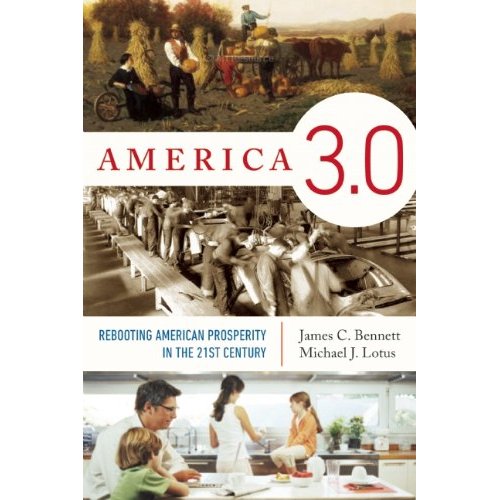Heavy breathing on the line: The wheel of the mandala
Wednesday, July 10th, 2013[dots connected by Lynn C. Rees]
Sigh
What did Lucius Aemilius Paullus know and when did he know it?
My teacher says:
- peace (sandhi)
- war (vigraha)
- observance of neutrality (ásana)
- marching (yána)
- alliance (samsraya)
- making peace with one and waging war with another
These are the six forms of state-policy.
But Vátavyádhi holds that there are only two forms of policy:
- peace
- war
Inasmuch as the six forms result from these two primary forms of policy.
While Kautilya holds that as their respective conditions differ, the forms of policy are six.
Of these:
- agreement with pledges is peace
- offensive operation is war
- indifference is neutrality
- making preparations is marching
- seeking the protection of another is alliance
- making peace with one and waging war with another, is termed a double policy (dvaidhíbháva).
These are the six forms.
Whoever:
- is inferior to another shall make peace with him
- is superior in power shall wage war
- thinks “no enemy can hurt me, nor am I strong enough to destroy my enemy,” shall observe neutrality
- is possessed of necessary means shall march against his enemy
- is devoid of necessary strength to defend himself shall seek the protection of another
- thinks that help is necessary to work out an end shall make peace with one and wage war with another.
Such is the aspect of the six forms of policy.
Of these, a wise king shall observe that form of policy which, in his opinion, enables him to build forts, to construct buildings and commercial roads, to open new plantations and villages, to exploit mines and timber and elephant forests, and at the same time to harass similar works of his enemy.
- Whoever thinks himself to be growing in power more rapidly both in quality and quantity (than his enemy), and the reverse of his enemy, may neglect his enemy’s progress for the time.
- If any two kings hostile to each other find the time of achieving the results of their respective works to be equal, they shall make peace with each other.
- No king shall keep that form of policy, which causes him the loss of profit from his own works, but which entails no such loss on the enemy; for it is deterioration.
- Whoever thinks that in the course of time his loss will be less than his acquisition as contrasted with that of his enemy, may neglect his temporary deterioration.
- If any two kings hostile to each other and deteriorating, expect to acquire equal amount of wealth in equal time, they shall make peace with each other.
More:
A king who is situated between two powerful kings shall seek protection from
- The stronger of the two
- Or from one of them on whom he can rely
- Or he may make peace with both of them on equal terms
Then he may begin to set one of them against the other by telling each that the other is a tyrant causing utter ruin to himself, and thus cause dissension between them.
When they are divided, he may:
- Pat down each separately by secret or covert means
- Or, throwing himself under the protection of any two immediate kings of considerable power, he may defend himself against an immediate enemy
- Or, having made an alliance with a chief in a stronghold, he may adopt double policy (i.e., make peace with one of the two kings, and wage war with another)
- Or, be may adapt himself to circumstances depending upon the causes of peace and war in order
- Or, he may make friendship with traitors, enemies, and wild chiefs who are conspiring against both the kings
- Or, pretending to be a close friend of one of them, he may strike the other at the latter’s weak point by employing enemies, and wild tribes
- Or, having made friendship with both, he may form a Circle of States
- Or, he may make an alliance with the madhyama or the neutral king; and with this help he may put down one of them or both
- Or when hurt by both, he may seek protection from a king of righteous character among:
- the madhyama king
- the neutral king
- their friends or equals
- any other king whose subjects are so disposed as to increase his happiness and peace, with whose help he may be able to recover his lost position, with whom his ancestors were in close intimacy, or blood relationship, and in whose kingdom he can find a number of powerful friends
The near weak fear near strength more than far strength. The near weak fear near hurt more than far hurt.
Near strength fears far strength more than near strength. Near strength fears far hurt more than near hurt.
For the near weak, fear is near. For near strength, fear is far.
For the near weak, hurt is near. For near strength, hurt is far.
The near weak support far strength to keep near strength doing what they must. Near strength opposes far strength to keep the near weak doing what they must.
The near weak support far strength so the near week can start doing what they can. Near strength opposes far strength so near strength can keep doing what they can.
Winner: far strength consolidates near strength into more far strength at the behest of the near weak.
There is a tipping point between the dispersed strength that favors liberty and the consolidated strength that favors tyranny. Localizing power away from a global center is insufficient. More appeal hurt from private wrongs than public hurt from government. A consolidated local grudge is more tightly held than a dispersed global grudge. Words and activity in private law dwarf words and activity in public law.
The wheel turns.
Local gripes get appealed over the head of private social circle to local predominance of violent strength. Hope that distance makes the heart grow objective springs eternal.
The wheel turns.
If appeal to local predominance of power proves unsatisfactory, local gripes shop far and wide for a more amenable remote predominance of violence hopefully free of local bias.
While far power can be free of locally shared bias, it is never free of a globally shared bias in favor of opportunity. There is profit for the strong in the grievance of the weak.
The wheel turns.
The far power intervenes. Intervention opens doors. Local power is suppressed, often in the name of the powerless.
The wheel turns.
Locally strength and local weakness find themselves pureed equally together into a uniform goo of even consistency with insufficient roughage to effectively resist an emboldened center. And all this in spite or despite their local merits.
The wheel turns.
The wheel of the mandala as outlined in the Arthashastra veers toward consolidated strength. When tilt is sufficient, bandwagoning commences.
The wheel turns.
Opportunists driven by fear, honor, or profit pile on the winner’s bandwagon. Tilt becomes pronounced.
The alternative to wheeling in circles is balancing. Localization is useless if it only replaces consolidated far tyranny with dispersed near tyranny. That leaves the chief window of opportunity for a re-consolidation of power, the appeal by the locally weak to remote strength for help against local oppression, ajar and tempting to the aspiring entrepreneur of power.
The Public Thing (Latin: res publica) is not rule by numbers. It is rule by balance.
Balance of strength and balance of fear within the Public Thing are like turtles: they must go all the way down.
Strength must not only be dispersed but it must be balanced, globally and locally. Any power, local or global, must be countered, checked, balanced, opposed, resisted, and cultivated for vigor to pervade the Public Thing. As a symbol, the scales of justice capture the essence of the Public Thing than the ballot. While the Public Thing may be unrepresentative of the public, it is never unjust to the public.
If unjust, it becomes a mere thing.
Possession of passing plurality does not grant permanent license to tip the division of power and terror one way over the other. The eternal dynamics of the cycle of strength mean that every political participant, weak or strong, fearful or comfortable, will triangulate between countervailing strengths in search of institutionalized victory for themselves and cronies. This triangulation powers the forever spin of the wheel of the mandala as the six forms of political power are deployed as strength allows and opportunity beckons.
The Public Thing relies on habit and a robust division of power to keep strength and consolidation apart, the center from stagnant fragilizing, and the whole thing from catastrophic disintegration. The Public Thing is an covenant to keep the wheel of the mandala spinning at a speed safe enough for foot traffic. To do otherwise unleashes the escalatory logic of politics, speeding the spinning of the wheel of the mandala as increased and mutualized resort to violence leads to consolidation followed by fragmentation followed by consolidation followed by fragmentation.
The wheel turns.
You’ll shoot your eye out. Woe unto the world for liberation through disintegration. For it must needs be that liberation must come through disintegration but woe unto those who find themselves so liberated.
Agreements are fragile. Graveyards are full of public things. Their epitaph is the moral of the story: break a deal, face the wheel.
And that’s why the NSA records (meta)data on all Americans.






